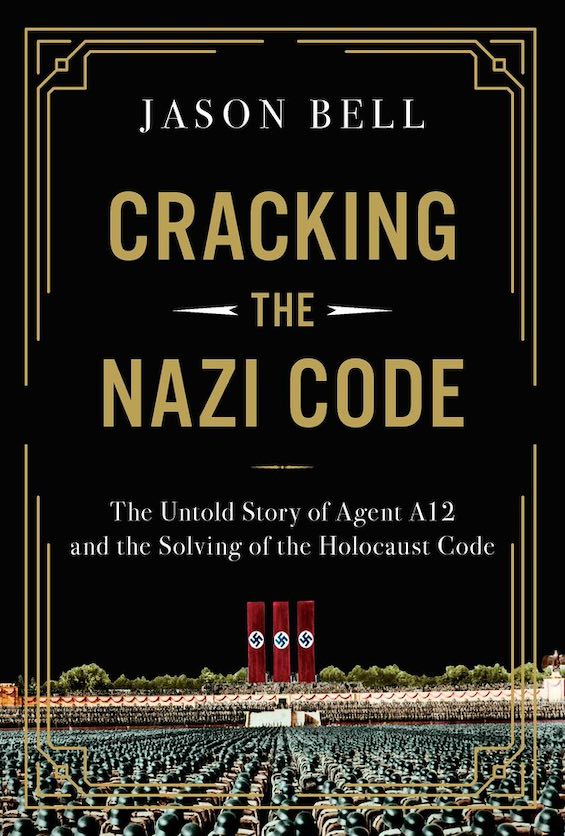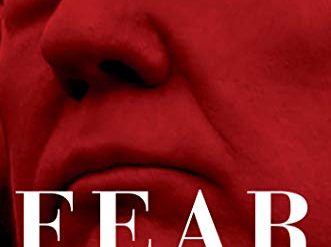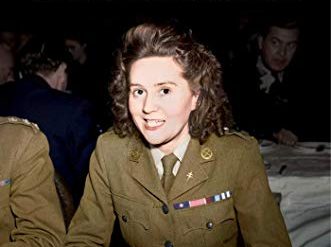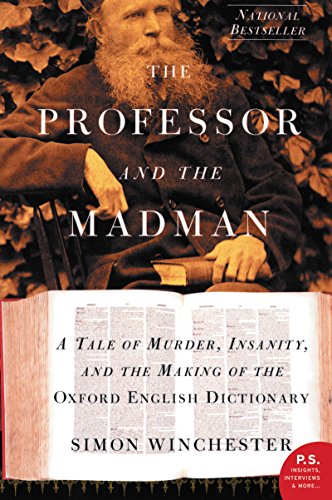
When the idea surfaced in 1857, scholars thought it was impossible. A comprehensive, historical dictionary of the English language encompassing every word ever repeatedly used in print for a thousand years? Nonsense! It would take years for a team of hundreds of lexicographers to make even a dent in such a task! Yet somehow it came about—after seven decades of monumental effort. The Oxford English Dictionary appeared in 1928—twenty volumes containing 400,000 defined words and 1.8 million illustrative quotations. Thousands of people were ultimately involved in its creation. But few played such pivotal roles as the two remarkable men profiled in Simon Winchester’s engaging, offbeat story about the creation of the world’s most important dictionary, The Professor and the Madman.
Estimated reading time: 6 minutes
A laborious process that never seemed to end
Today the Third Edition of the Oxford English Dictionary defines 600,000 words illustrated by three million quotations representing the evolution of the English language since 1150 CE. It’s online now, and continuously updated with new words. (Subscriptions are available at $100 per year.) But for more than a century, the men and women who labored so diligently to produce the gargantuan dictionary worked entirely by hand. Writing (or, in later years, typing) words, quotations, and definitions on three-by-five-inch or four-by-six-inch cards or slips of paper. Inserting the cards in pigeonholes. And, until they adopted Hollerith card-sorting machines well into the 20th century, manually alphabetizing them for comparison with previously recorded entries. This is the process Simon Winchester describes in his tale of the legendary Dr. James Murray, editor of the first edition, and his volunteer collaborator, Dr. W. C. Minor.
The Professor and the Madman: A Tale of Murder, Insanity, and the Making of the Oxford English Dictionary by Simon Winchester (1998) 242 pages ★★★★★
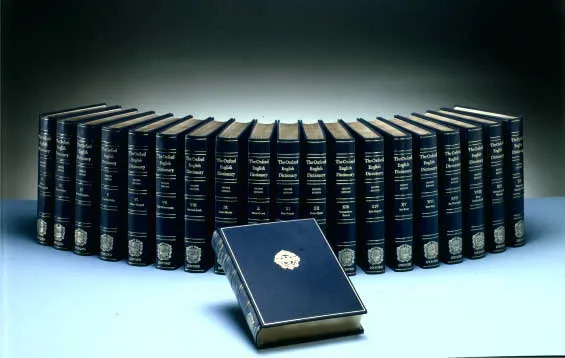
Two extraordinary men at the heart of the dictionary’s development
The title of Winchester’s book is an accurate guide to the contents. He tells the story of the dictionary’s development, and tells it well, citing details I haven’t come across elsewhere. He terms the process “the greatest effort since the invention of printing,” and so it may have been (at least so far as language is concerned). But the two men—”the professor and the madman”—are his true subject. Sir James Murray (1837-1915), the self-taught Scots prodigy who belatedly gained a doctorate from Oxford University and a knighthood and served as the OED’s editor from 1879 until his death. And Dr. William Chester Minor (1834-1920), a brilliant American Union Army surgeon and veteran of the Civil War who spent the years from 1872 to 1910 locked up in England’s Broadmoor Criminal Lunatic Asylum. For three decades, these two extraordinary men stayed in contact by letter, and later in person, advancing the work of the dictionary. Ultimately, they became close friends.
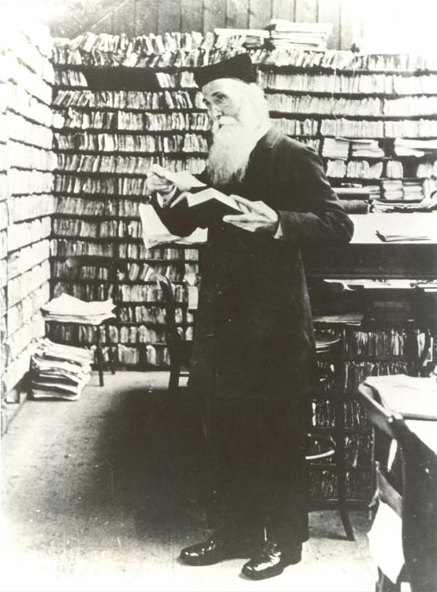
A monumental work built on volunteer labor
The Oxford English Dictionary is arguably the world’s most important dictionary. But it was built on volunteer labor. Initially, the members of England’s Philological Society culled through their books to find “interesting” words which they passed along to the editor. But the work moved far too slowly and only picked up with Dr. Murray’s appointment as editor in 1879. He quickly posted advertisements in newspapers and sent out a call through likely networks of readers to join as volunteers. He asked each person who responded to read rare and unusual books published during specific periods in English history and send him words and interesting or unusual illustrative quotations through the mail. Over the years, thousands volunteered, and a great many of them actually did the work. Dr. Minor was one of those volunteers—and over time he became one of the most prolific, contributing thousands of quotations that entered into the text of the dictionary.
So, who was Dr. Minor?
In 1872, William Chester Minor shot and killed a man in a poor London neighborhood. He was arrested and tried for murder but found to be “criminally insane.” Investigation showed that he was wealthy, a surgeon, and a captain in the Union Army. But he was clearly, flagrantly delusional, tortured by waves of mysterious imaginary men. He’d thought the poor workingman he killed was one of his tormentors. The result was his confinement at the Broadmoor asylum from 1872 until 1910 when, old and frail, he was repatriated to the United States under the guardianship of his brother. However, during more than twenty of those years, Minor passed the time at Broadmoor poring through the rare old books he was allowed to have brought in—and painstakingly compiled thousands of words and quotations for Dr. Murray’s use in the dictionary.
Several years after their correspondence began, Murray visited him, and the two developed a close relationship. Minor was brilliant and possessed deep knowledge and love of language. The work on the dictionary gave him a purpose for twenty years and filled his days. But eventually his delusions veered entirely out of control, and he could no longer escape their pull. The correspondence stopped. But Murray continued to visit him on occasion throughout Minor’s remaining years in the United Kingdom.
About the author
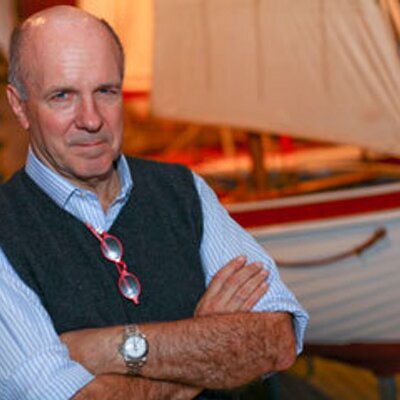
The British-American author and journalist Simon Winchester (1944-) has written more a dozen nonfiction books and one novel. For many years he worked as a reporter, first for The Guardian and later for the Sunday Times. He is a graduate of St. Catherine’s College, Oxford. In 2011, he became a naturalized US citizen and now lives in Massachusetts.
For related reading
This title is featured on Good books about dictionaries, libraries, and language.
Check out my other reviews of excellent books about dictionaries:
- The Broken Teaglass by Emily Arsenault (A refreshingly offbeat novel about creating a dictionary)
- The Liar’s Dictionary by Elly Williams (A hilarious novel about a dictionary)
- The Dictionary of Lost Words by Pip Williams (A moving novel about the making of the OED)
You’ll also find books on related topics at:
- 20 top nonfiction books about history
- Great biographies I’ve reviewed: my 10 favorites
- My 10 favorite books about business history
And you can always find my most popular reviews, and the most recent ones, on the Home Page.


